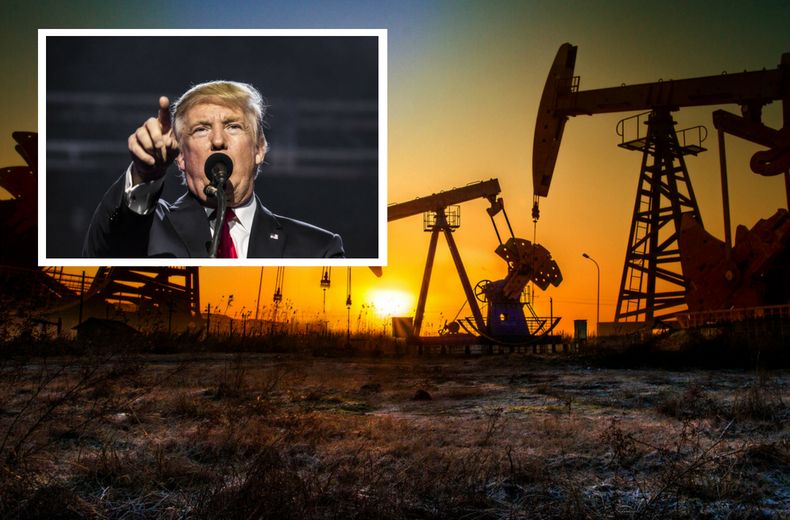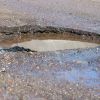Following the decision of US President Donald Trump to scrap the nation’s nuclear deal with Iran, the price of oil rose to its highest in almost three-and-a-half-years, at $77.16 a barrel.
RAC fuel spokesman Simon Williams says the news heralds a “potentially toxic” situation for UK motorists, already forking out the highest prices in 16 months on the forecourts.
Here's a bit of background on the issue and how it's developed.
Why does the price of oil affect fuel costs?
The price of crude oil is a significant factor in the cost of fuel, because both petrol and diesel is refined from crude oil.
The price you pay for petrol and diesel at the pumps is governed by the wholesale price (what the supplier pays the producer) of fuel, which in turn, is affected by:
- the global price of crude oil
- supply and demand for crude oil
- refinery production and capacity
- the pound to dollar exchange rate, as refined fuel is sold in US dollars per metric tonne
- distribution costs
- the margin fuel retailers decide to take
- fuel duty charged by the Government, currently 57.95p a litre
- VAT (20%) charged at the end of every forecourt fuel transaction
More information is available on RAC Fuel Watch.
What is the Iran Nuclear deal?
After Iran refused to comply with safeguards to restrict the country's production of nuclear weapons, the United Nations imposed sanctions on the country which led to heavy sanctions by the U.S to restrict the transportation and sales of oil internationally. This resulted in Iran’s oil sector significantly losing revenue.
Later, the US, Russia, Britain, Germany, France, China, and the EU negotiated the Iran Nuclear Deal, lifting some of the sanctions in return for Iran's cooperation in refraining from producing nuclear weapons - to try and establish peace in the Middle East.
How does Trumps decision to leave the Iran nuclear deal affect UK fuel prices?
Last week, Mr Trump announced that he intends to pull the US out of the Iran nuclear deal and issue fresh sanctions against Iran.
Investors reacted, speculating on what renewed sanctions might mean for crude supplies. Most experts believe plans to exclude OPEC’s third-biggest producer from global markets was behind the lift in price.
IN OTHER NEWS: Air pollution tab should not be picked up by drivers – MP
The RAC’s Mr Williams points out the last time oil jumped as high as $77 a barrel was in November 2014 – a time at which prices were plummeting due to OPEC’s decision to oversupply the market.
“Unfortunately, the situation now is very different as supply is being curbed and the pound is far weaker ($1.35 v $1.57) which makes fuel more expensive as, like oil, it's traded in dollars,” he added.
“This is potentially a toxic combination for motorists as it will inevitably lead to price rises on the forecourt.”
Mr Williams reminds drivers that although a “distant memory” it was only early 2016 when the cost of a litre of petrol or diesel stood at under a pound.
The latest anticipated rise comes in an inopportune moment, he says, with drivers “already suffering”.
“If another couple of pence a litre goes on as a result of the higher oil price and the fact the pound is at a four-month low could take the average cost of a litre of unleaded to 126.5p - a price last seen in October 2014 - which would make filling up a 55-litre family car cost nearly £70.”
READ NEXT: Fuel prices explained
MORE ADVICE: How to save fuel - the ultimate guide






